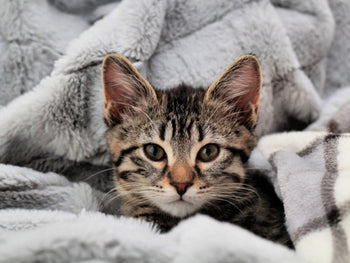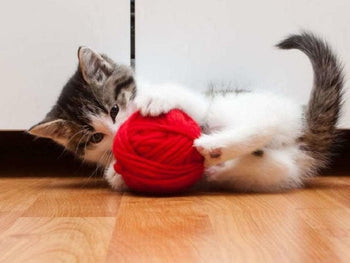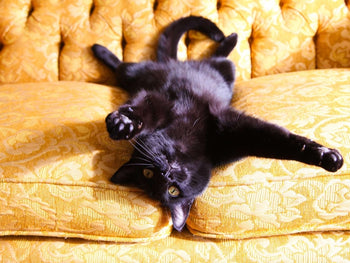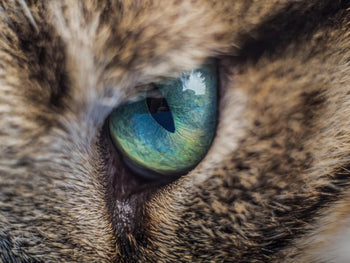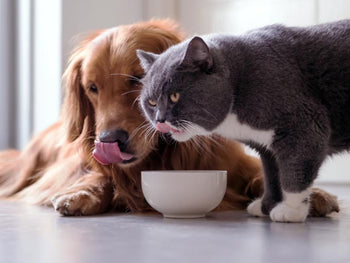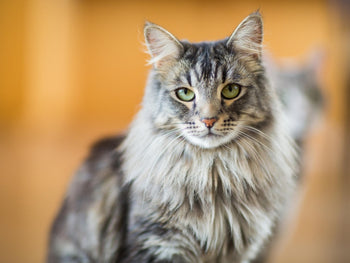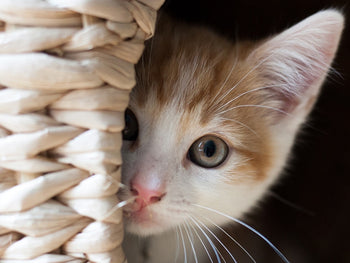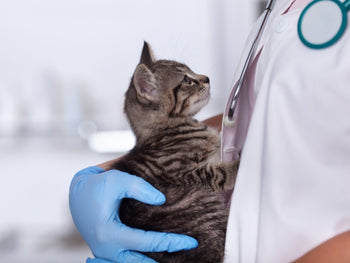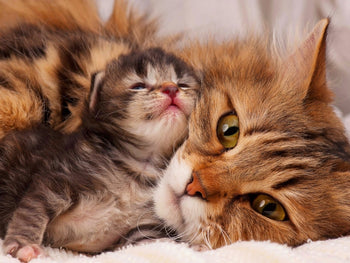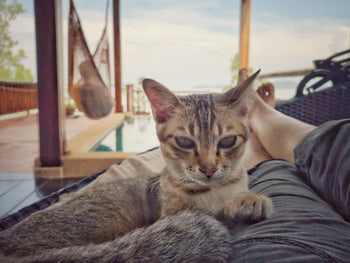
Like humans, cats experience health issues in their life and on occasions, it's necessary to give the pet medicines to help them get better. Persuading the felines to accept the medication tends to prove to be slightly tricky but sure, it could be done. However, following treatments that involve administering drugs, some cats suddenly start foaming at the mouth. Needless to say, the sight of our adorable cat foaming at the mouth after medication sends everyone into a panic. That being said, it's essential for you to remain calm to analyze the situation.
Have no idea what is going on with your furball? If that is so, you should find everything you need to know about the issue of cat foaming at the mouth after medication down below.
Several Suspects You Must Memorize

Considering the nature of the felines, a lot of things would make them behave erratically. However, if you notice foaming, drooling, ... in your pet after it receives medicines then keep in mind the following culprits.
-
The Bitter Taste Of Medications
Obviously, oral medications rarely taste good which is why it's a pain to make your fluffy friend accept them. In the case the pet ingests the drugs then they only do that with great reluctance. But regardless of what cats think, the unpleasant taste of the medicines usually causes their mouth to foam up. That is purely a natural reaction of the felines when they consume bitter-tasting substances. As a result, you don't have to do anything in particular besides giving your cat some treats to get rid of the bitter taste.
-
Excessive Build Ups Of Fear
For the pets, it's indeed frightening to be taken to a strange place then forced to swallow stuff that tastes awful times and again. Once the fear finally becomes unbearable for the felines, an assortment of activities shall show up like hiding, trembling, extravagant grooming, ... and of course, foaming. So if you see your cat foaming at the mouth after medication, it's highly likely the poor pet is in a state of panic. In that scenario, it's widely advised that you re-examine your method of administering medicines to your furball.
-
Nausea Due To Motion Sickness
Cats that mostly stay in the house may have a hard time coping with a sudden trip to the vets. Normally, the pets could hold themselves together for some times but everything might burst once they have to swallow medications. On the bright side, foaming caused by motion sickness should eventually come to an end once the felines regain balance. Therefore, you only need to wait for the issues to resolve itself but as a precaution, inform the vets at once if the foaming persists.
-
Seizures Caused By Certain Drugs
Generally speaking, cat prescription medications have to go through extensive tests before reaching the market which minimizes unwanted side effects. That being said, different cats have different constitutions so it's still possible for a couple of pets to enter seizures after receiving specific drugs. Hence, if you notice your cat foaming at the mouth after medication in addition to distinctive signs of seizure such as muscle contraction, loss of consciousness, unresponsiveness to stimulation, ... proceed to contact the vets immediately.
-
Dental Problems (Gum Diseases, Stomatitis,...)
Because of the layout of their teeth, cats seldom have cavities but other dental problems would show up on occasions. Depending on the severity of the oral condition, it's possible for foams to form in the mouth of the pets from time to time. Usually, if the felines are indeed suffering from dental-related issues then additional telltale symptoms besides the foam shall emerge such as loss of appetite, bad breath and so on. But to be sure, it's necessary for you to sign your furball up for thorough examinations at veterinary clinics.
Check us out for various astonishing cat tips & facts!
The Ideal Course Of Action

Overall, when you see something odd in your cat, it's a good idea to contact the vets for consultation. The well-trained professionals could determine what is happening with the pets faster and more accurate than most cat parents. That is why getting the felines straight to the veterinary clinics is always a safe bet in virtually every scenario. Once the health of your fluffy friend is in the line, it's impossible for you to be too careful. Still, you must remain calm so as to give the vets information about the situation.
Giving Medications To Cats: Suggestions

By giving our pets medicines, it's obvious that we want them to get better. Here are a couple of things you need to keep in mind to earn the cooperation of your as well as lessens the unsightly foam.
-
Consider Using Specialized Compound Medications
Many cats start foaming up after medications because that is how they react to the bitter taste in their mouth. Therefore, if people manage to somewhat mask the taste then the foaming should be mitigated. To do just that, go to compounding pharmacies for pets to ask them to make compound medications for you. Compared to conventional medicines, compound drugs tend to have more acceptable tastes to the average cats. Therefore, chances are the felines would be more willing to swallow everything without much difficulty.
-
If Possible, Change The Form
Nowadays, a particular medicine may be available in a variety of forms: pills, tablets, eye drops, chewable treats, transdermal gels... That means in the case you cat happens to respond negatively to a certain form (excessive foaming, drooling, vomiting and alike) then seek out alternatives. For most of the time, the majority of vets shall prepare a list of options for you if you inquire. As a precaution, make sure that those ingredients stay practically the same as you change the form of the medicines.
-
Hand Out Treats As Encouragements
When cats see foods, they are going to forget everything in the world including things that make them feel uncomfortable. Therefore, keeping treats that your fluffy friend loves nearby while giving it medications works wonders.
Read more Cat's Health Guides and find fun stuffs on Cattybox!!
